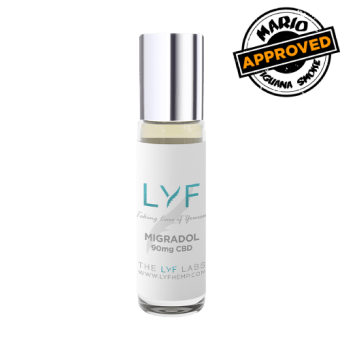
Celebrate 4/20! Discover the Origin of this Holiday
At Iguana Smoke, we are excited to join in the celebration of 4/20, an iconic date for cannabis lovers around the world. But from

People are concerned about CBD largely because Cannabis is a taboo subject.
The benefits of CBD are many and fortunately there is more and more information available. Today we are going to give you the facts about a report published by the WHO (World Health Organization) on CBD, which you can read here. download here.
So, without further ado, let's see what the report says:
"Sounds great but what if I become dependent" o "If it works so well, can I get addicted?"These are questions that we have been asked thousands of times, and it is normal, because there are many people who start taking a medicine because of pain, or for any other reason, and ends up abusing it.
There are no reported cases of CBD dependence or abuse.
World Health Organisation
The WHO report tells us that CBD is not addictive. Studies in mice showed that there was no dependence on CBD (unlike THC).
To date, there are no reported cases of CBD abuse or dependence.
No adverse reactions as such have been found and apparently there are few side effects when mixed with some medications. You already have the link to the WHO document to download, but if it is too heavy for you, at Project CBD it is also explained very well here.
The WHO report tells us that CBD has been proven to be an effective treatment for epilepsy. It also tells us that this is because there are many studies in this field. Although the other research is considerably less advanced, most of it is pre-clinical evidence, but evidence nonetheless, and it tells us that the properties of CBD are:
In countries such as the USA, Switzerland or England the CBD helps many people in their daily lifeand that number is growing every day. It is really a pity that in Spain, as always, we are still super-tired) is not yet accepted for sale for human consumption.
Responsibility: The information listed, referenced or linked to in this post and all blog content is for general educational purposes only and does not provide professional medical or legal advice.







At Iguana Smoke, we are excited to join in the celebration of 4/20, an iconic date for cannabis lovers around the world. But from

CBD, or cannabidiol, has become a common companion for many due to its known therapeutic properties. Among its most common forms of presentation
Escríbenos


promotion cannot be combined with other offers.